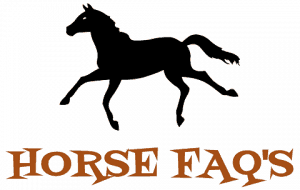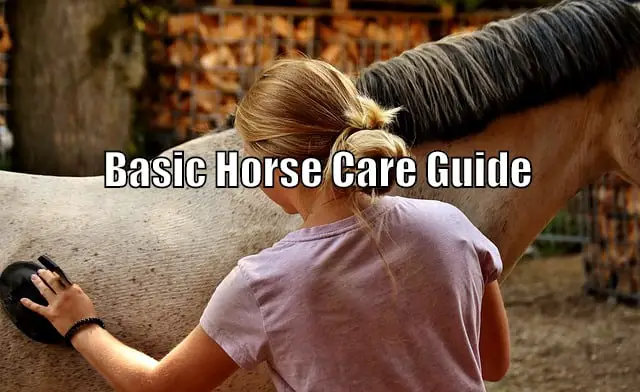Basic Horse Care Guide
If you are committed to give your horse the comfort they need, there are essential things you need to ensure you keep in mind. Maintenance and care is especially crucial for good upbringing and wellness of your horse. Treats are also important as they help you build a lasting bond with your horse. For example, you know they love carrots so get them some every time you fetch them for a ride and you will succeed in your quest to nurture a well-mannered and calm domestic horse.
You should consider visiting an expert or experienced horse rider and consultant. Here, you will learn about all the tools you need for a perfect start into horse care and maintenance. The nearest experienced and skillful rider near you should be the best option for practical learning. Research extensively too so you will not be limited with information concerning your horse’s wants and needs.
Best beginner Breeds
Like every other activity, which we engage as amateurs, we want an easy way through. This is not always true as a difficult beginning is inevitable in most activities. When trying out for a new hobby with horses, you need guidance on the best options for horse breeds that will allow you to grasp quickly. While some types are suitable for experienced professionals, there are those, which are appropriate for learners. You need horses that are gentle, take instructions, and calm in nature. You do not want a horse that takes challenges and out-thinks you. New riders should therefore, take a keen interest in the type of horses they choose.
We all want the appropriate breeds for our first ride. This is vital for our first experience. The most popular breeds for amateurs are the quiet ones. Although there are alterations in the debate over the most suitable horse, a few are acceptable as the most appropriate. They come with many advantages but just like anything else, they too have their downsides. Here are the most common breeds acceptable as ideal for a beginner; American Quarter Horse, Thoroughbred Horse, and Miniature Horse
Daily tasks
There is no guarantee that horse care and maintenance is easy. This is a major responsibility for the owner. It requires as frequent as daily grooming and cleaning to nurture and ensure high standards of hygiene.
- Feed your horse at least twice or three times
- Always keep checking your horse’s water supply
- Assess your horse for any signs of health troubles
- Take the horse out to exercise regularly
- Always clean out your horse’s stall once or twice every day
- Groom your horse and clean her hooves
Grooming tools
Your horse needs frequent grooming to maintain good hygiene. Moreover, you can tighten your bond with your pet as you boost its health. Cleaning the coat and hooves is an essential part of the grooming. You probably know how much they like to be brushed and have their hooves picked to reinforce their bond. Here are some of the tools you need for proper grooming
Hoof Pick
This will help you to clean debris out of the frogs of your horse’s hooves. You should be careful not hurt the horse because the gaps can be sensitive to touch especially by a sharp object. The picking process should therefore be gentle and consistent until the day the horse will get used to it to appreciate the service.
Curry Comb or Hard Plastic Brush
They will help you get debris off the horse’s coat fast and easy while concentrating on the stubborn stains. Do not let your horse stay with dirt and debris if you love him or her. Take time to scratch away all debris using the currycomb or hard plastic brush as frequent as you can. Shedding blades come in handy in this process too. The blades allow your horse get rid of its thick winter coat in the springtime.
Soft Brush
A soft brush feels good to your horse and brings out the shine in its coat. Your horse loves this moment and will allow you to build a lasting bond. Take time to groom them using the soft brush to show how much you care. It may seem a little gesture but it goes a long way in building your relationship.
Hoof Treatments
Hoof treatments are a-must considering the wet seasons. Beware that rainy seasons make horses prone to thrush and dry spells where a hoof moisturizer is a necessity. You should therefore, Keep remedies for both dry and thrushy feet on hand at all times for the safety and comfort of your horse
Wound Powder
Horses are easily susceptible to cuts, scrapes, and other minor injuries. However, these injuries do not necessarily need veterinary attention but quick minor repairs. This does not mean you should ignore them because they need all the help they can get. Get prepared with a first aid kit especially in powder form as it works best because they dry up any blood fast and easy. If you want to be adequately prepared for horse emergencies, you should keep an animal first aid kit around the barn.
Treats
Just like your best friends of family, you should have treats for your hose. They can be as simple as carrots or as elaborate and complicated as purchased goodies. The gesture of giving your horse goodies as frequent as every time you go out to fetch him, you will be building up a strong positive association with catching your horse. If on the other hand, they seem to get bored in its stall, you can opt for a combination toy and treat dispenser like the Jolly Ball treat combo.
Responding to emergencies
Before Emergencies
You need to have a plan in place that you will follow during the event of an emergency. This will help you to prevent panic. Your plan should include several evacuation routes, in case you need to move your horse from the pen.
It is important to display emergency phone numbers prominently in many easily visible locations. The phone numbers should consist contacts of your veterinarian, friends, as well as neighbors who are in a position to assist you in case of the emergency
Check your horse’s paddock regularly to be ahead of things. This will help you to stall for potential hazards. This includes regularly monitoring your horse’s vital signs. You will have to learn when a change indicates a more sinister issue to follow up.
During an Emergency
In case your horse sustains an injury, you should try to keep them calm. However, if you are not near, you should consider having a well stocked and portable first aid kit handy.
Call the vet immediately. They should be able to assess the severity of the situation with you. The veterinarian should also take you through the basics of what to do as you await their arrival.
At the time of administering first aid, you should try to stop any bleeding. Cleanse and prevent further infection. In case the blood loss cannot be controlled because of a serious wound, immediate veterinary intervention is critical to save the horse.
First Aid Kit
It is important to have your well stocked first aid kit with the following things;
- Stethoscope
- Sharp scissors
- Saline solution or flush
- Poultice bandage
- Hand Sanitizer
- Halter and lead rope
- Gloves
- Gauze pads
- Digital thermometer
- Bandages (adhesive and non-adhesive)
- Antiseptic solution
Food
It is easy for most horse owners to go overboard on the food quantity. Beware that overfeeding can lead to problems such as; obesity and equine metabolic syndrome and may, in turn, lead to laminitis. In case you find yourself turning into a master chef for your horse, check out the needs and activity of the horse. If they do not have any unusual or specific feeding requirements, you are risking the danger of overfeeding the horse.
Just as overfeeding is dangerous, underfeeding too, can be a problem especially with senior horses and horses that are working hard. Although the most hard-working horses should look lean, they shouldn’t necessarily appear gaunt. Check your hay or pasture; if it is not enough to keep your working horse in good condition, find concentrates to make up for the deficit and shortfall. On the other hand, consider the fact that the bulk of your horse’s diet should consist grass or hay. Underfeeding hay or pasture and overfeeding grains and concentrates easily cause colic.
Purchasing hay can be difficult. It is not worth it to be particular because poor hay can be responsible for all types of problems. The hay may be nutritionally deficient and unsuitable for horses and can also cause colic. Note that dusty, moldy hay can harm your horse’s lungs.
Shelter
A Round Pen is an indispensable training place for a horse owner and the horse. It is the safe place, which offers confinement and an area to work or ride your horse. This wooden round be completed in one weekend but serve you for many years. The standard size of a round pen should range between 50 feet in diameter. 5 feet of height are enough for the pen but can be modified according to your preferences later.
Building a round pen is extremely important but not necessarily expensive or demanding. The resources are easily accessible and cheap. For example, posts, rails, and footing can help you make an adequate round pen without spending a fortune. If you are on budget and want to keep minimum expenses on your round horse pen, you can take some few ideas and tips here.
Supplements
It is important to ensure the overall health of your horse is intact from the joints to the muscles. Joint complications are among the most common ailments affecting horses throughout the course of their lifetime. Find the appropriate joint supplement for your horse as a way of ensuring they develop healthy joints.
It may not easy to find the right joint supplement for your horse. It does not have to be a daunting task as there are so many joint supplements for horses available today. The wide variety may make your head spin. Here is a list of some popular joint supplements for horses to help you
Bute Less (B-L) Solution is a popular and reliable supplement too. It is nature’s alternative for bute. B-L Solution contains devil’s claw Harpagophytum, and Vitamin B-12 Supplement. It helps with improving conditions such as Yucca and Devil’s Claw extract.
Conquer Powder orally administered hyaluronic acid (HA): This supplement is developed and clinically tested by veterinarians. Luckily, it is all natural, non-toxic and safe.
Joint Combo Hoof & Coat supplement is designed as a 3-in-1 product for complete joint, Hoof & Coat care. The supplement comes with Glucosamine, Chondroitin Sulfate, Vitamin C, Manganese and MSM within.
Musculo-Skeletal is an all-natural formula. It is useful in muscular injury, lameness, and sprains. Other problems include; tendon injuries, laminitis (founder), navicular, stiffness, pain on movement, arthritic conditions, bruised sole and bruising, spavins, splints, and windgall.
Companionship
Since horses are herd animals, they naturally depend on membership to a group for security, social status, emotional support and amusement. Regardless of how much they may seem attached to their owner, there is no way for a busy human to provide enough companionship the horse needs. No human is capable of giving the horse the social interaction they need. It is therefore, important for the owner of a single horse to turn him loose out with cows for company or keep another animal. A goat or donkey, in the barn can also be great company for the horse besides the owner. Introduction of other animals can help fill the void. Nevertheless, most horses do best around members of their own species. Buy another horse or find a neighbor who owns to help your horse get some natural company from the peers.

